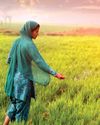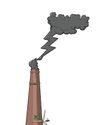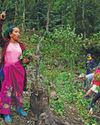
DESPITE BEING the epicenter of the mpox outbreak that has infected over 103,000 people across 122 countries since January 2022, the Democratic Republic of Congo (DRC) received its first batch of vaccines on September 5— nearly two years after the US and European nations began stockpiling them following their own cases.
So far, DRC has received 99,000 doses from the EU, with another 110,000 doses expected soon. However, these figures fall far short of the 3 million doses officials estimate are needed to bring the outbreak under control (see "The politics and economics of mpox', p44-45). Nigeria, the only other African country to secure vaccines, has managed to receive just 10,000 doses.
The World Health Organization (WHO) has declared mpox a public health emergency twice in the past three years-first between July 2022 and May 2023, due to its rapid spread outside Africa, and again on August 14, 2024, following a surge in cases across Africa, largely driven by mutations in the virus.
The mpox virus is categorised into two main clades: I, endemic to Central Africa, and II, which was previously known as the West African clade. Both have two subclades a and b. Clade IIb drove the 2022 global outbreak. The current spike in cases, however, is largely attributed to the more virulent clade Ib, which spreads through close contact and contaminated surfaces.
This story is from the {{IssueName}} edition of {{MagazineName}}.
Start your 7-day Magzter GOLD free trial to access thousands of curated premium stories, and 9,000+ magazines and newspapers.
Already a subscriber ? Sign In
This story is from the {{IssueName}} edition of {{MagazineName}}.
Start your 7-day Magzter GOLD free trial to access thousands of curated premium stories, and 9,000+ magazines and newspapers.
Already a subscriber? Sign In

On shaky ground
Despite reporting net gains in green cover, the latest forest survey shows degradation of natural forests, particularly in ecologically sensitive hotspots

Burden of proof
The government's drive for e-KYC verification to ensure rightful targeting of beneficiaries has proved exclusionary for many

Rupee slide impacts agricultural trade
THE UNION Cabinet on January 1, 2025, approved the extension of a subsidy package of ₹3,500 per tonne on di-ammonium phosphate (DAP) for companies.

THE 500 GW SWITCH OVER
Coal is the king of energy at present. India needs to dislodge it with clean energy for an equitable green transition

MANIFESTING 500 GW
Ensure that renewable energy is available round the clock.Establish a viable market and reward those who take lead

Lifting a curse
How Gangabai Rajput helped her water-scarce village in Madhya Pradesh let go of superstition and revive an ancient waterbody

HOLD THEM SACRED
The Supreme Court has recommended that the Union government create a comprehensive policy for the governance and management of sacred groves across the country

REPORT CARD 2024
Coal is still the king in terms of electricity generation. But new renewables, mainly solar power, have shown an impressive growth

'India a laboratory for seismologists'
India is no stranger to earthquakes. In recent memory, Latur and Bhuj districts in Maharashtra and Gujarat witnessed devastating tremors in 2003 and 2001 respectively. Such quakes leave clues that can aid preparations for future events, say seismologists KUSALA RAJENDRAN, professor, Indian Institute of Science, and CP RAJENDRAN, adjunct professor, National Institute of Advanced Studies. The Rumbling Earth-The Story of Indian Earthquakes, captures their work on historical as well as recent quakes. In an interview with ROHINI KRISHNAMURTHY, they discuss the science of earthquakes, why the Himalayas are due for a huge event and why prediction remains a challenge. Excerpts:

Capturing Siang
As India pushes for a mega-dam on the Siang river to counter China's upstream projects, the Adi tribal community of Arunachal Pradesh fears losing ancestral land